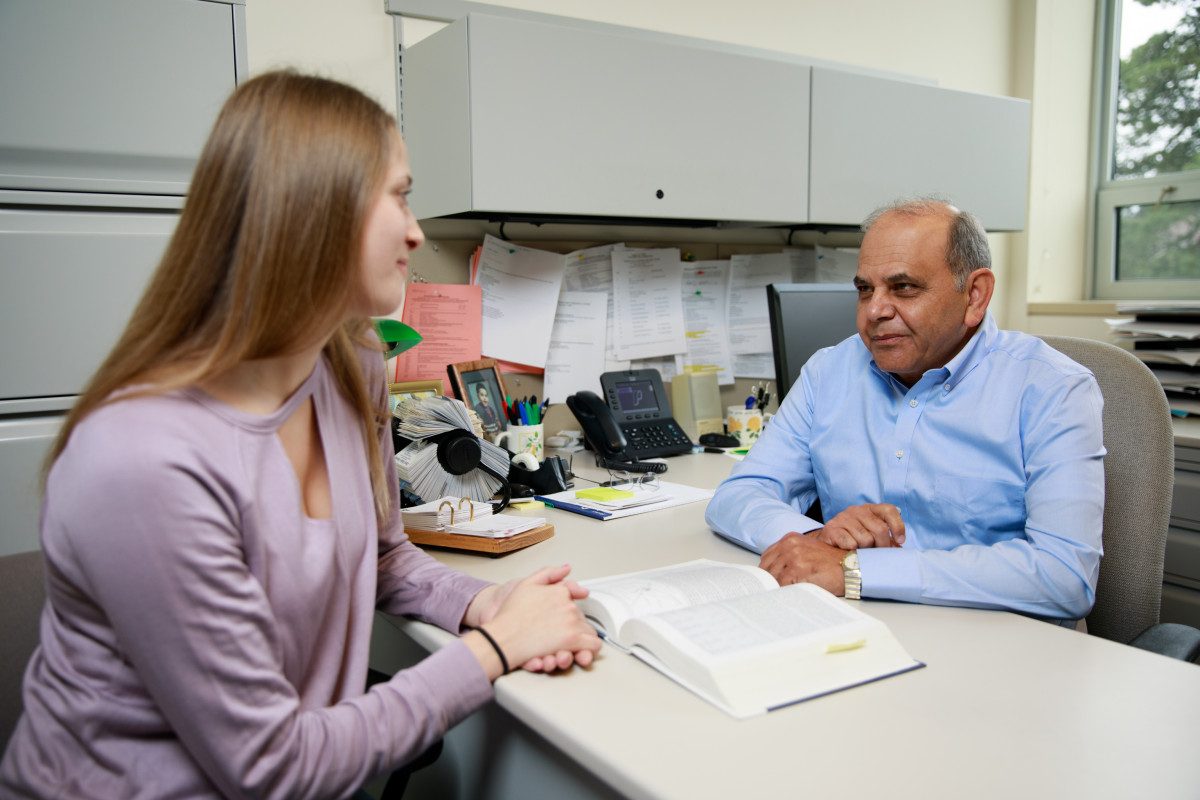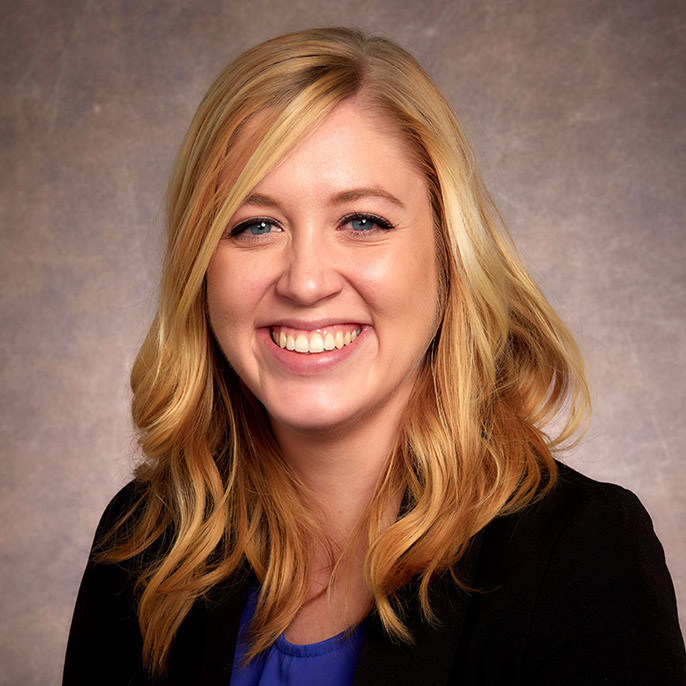Is your student maximizing their relationship with their Program Counselor, who can support them in planning for academic success? We asked Katie Richardson, an Academic Program Counselor for the College of Arts and Sciences, about academic advising, improving grades, and registering for classes.
1. What is your role as a Program Counselor?
As one of the program counselors within the College of Arts and Sciences (CAS), I provide academic planning and advising to all undergraduate CAS students, but our office primarily works with first-year and sophomore students. Program Counselors for each Professional School (Business, Education, Engineering, and Nursing) provide specific academic planning services for students enrolled in programs within that School or College. Students should visit a Program Counselor for degree planning, choosing courses for registration, planning for Study Abroad, discussing summer or transfer coursework, adding majors or minors, or exploring general career options related to specific programs. Program Counselors also assist with UP Orientation and Visitation, so they are a great resource to answer first-year and transfer student question.

2. What is your favorite part about being a Program Counselor?
I love how well I get to know our students over their time at UP! Going to college can be exciting, scary, and overwhelming all at the same time. I like being able to provide a safe, supportive environment to students who may be having a hard time with the college transition. It’s also so exciting to see how a student’s academic and career interests develop and grow throughout their time in college. I’m so glad I get to support them through that process!
3. How can students make the most of their relationship with their Program Counselor?
Visit us often (once per semester is great) and come prepared with questions. Remember that Program Counselors are experts in academic planning, but we also know a lot about the University as a whole. If you’re looking for an on-campus job, wondering how that academic minor might help with your career pursuits, or want to talk about resources on campus, we’re a great place to start. Especially when you’re not sure who to talk to, reach out to your Program Counselor. We’re happy to help!
Click here to find out how your student can contact their Program Counselor.

4. If a student’s mid-term grades aren’t where they want them to be, what advice would you give someone who wants to finish off the semester strong?
Here are a few things for students to keep in mind:
- Connect with resources on campus to get the support you need to succeed.
Are you having trouble grasping the concepts in your math class? Visit the Math Resource Center in the Learning Commons. Is test anxiety causing you stress? Contact Brother Thomas Giumenta, Learning Assistance Counselor. Accessible Education Services (AES) offers testing and study accommodations to students who are eligible. Find a group of students to study with in your classes. There are lot of ways to work towards pulling your grade up!
- Meet with your professor!
Make an appointment or go to office hours to talk with your instructor about your grade, review any concepts or questions you have, and discuss how you can improve your grades for the second half of the semester. Professors want to help and are more than willing to do what they can so that you are successful in your classes!
- Know your options moving forward.
Once you’ve met with your professor and have an idea of your possible grade moving forward, you can make a choice on how to best proceed. Most of the time, this means putting together a plan for success (attending class, taking good notes, studying for a certain number of hours per week, etc.). However, if you know that the highest possible grade you can get for the course is a D, then you may consider withdrawing from the class and retaking it at another time. If the class is not required for the University Core or your major, you may consider changing the grade for that course to “Pass/No Pass.” You may also decide that a D is an acceptable grade for this course and that you will work toward obtaining that grade. Meet with your Program Counselor to discuss all your options and choose the one that’s best for you.

5. Do you have any tips to share with students for alleviating concerns or stress regarding class registration?
It’s very normal for students to not get into all of the courses they want each semester. I experienced this myself as an undergraduate student, and I know that most first-year students feel anxious during their first registration experience. However, keep in mind that you won’t be off track to graduate in four years! Make a ‘Plan A’ for registration (the courses you really want to register for), and then make a list of alternative courses that could be used for backup. If it comes time to register and you find that one of your preferred courses is closed or full, try registering for a course on your backup list. If you cannot get into a course that you believe is required for your major and must be taken during a specific semester, please reach out to your Program Counselor for assistance. There will always be a way to get you into the courses that are required to keep you on track.
6. What are the most important dates and deadlines for students to know for advising and spring class registration?
In general, students will want to make an appointment with their advisor between early October and early November to prepare for registration.
Students who are Athletes, Honors, or have AES priority registration will be contacted by the associated office with important registration deadlines. Registration forms will be due to these offices earlier than the regular registration period.
Students can register themselves for classes online at the time designated on the Registrar’s website. Student registration times are selected each year by the Registrar’s office to ensure that all students have the opportunity to register first within their class at least once. Registration takes place November 5–14, 2019.
Students can continue to register after their initial registration period. Registration stays open through the first week of the following semester (January 17, 2020).

Katie Richardson, M.Ed. completed her bachelor’s degree in Cultural Anthropology and Master of Education in Student Development. In addition to general advising, Katie also works with undeclared students and students on academic probation. When she’s not working, she enjoys running, snowboarding, and traveling to new places.
